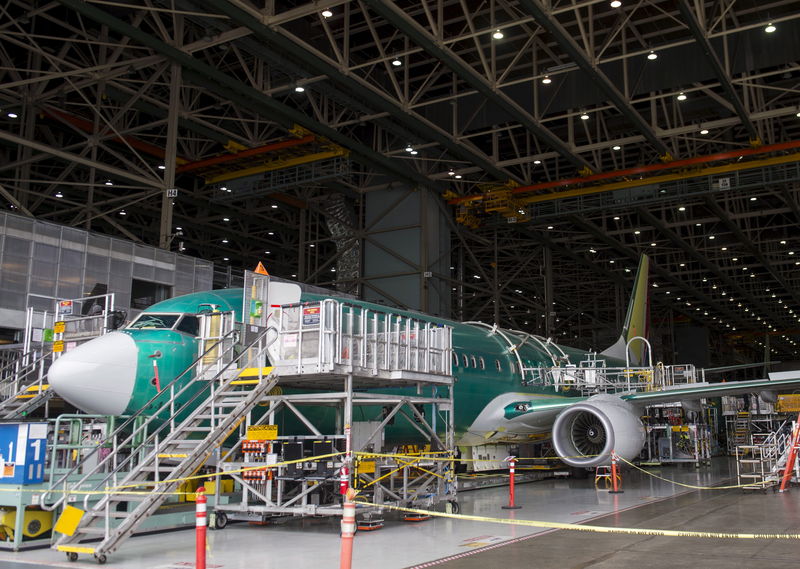By David Shepardson
WASHINGTON (Reuters) – The Federal Aviation Administration’s tougher oversight of Boeing (NYSE:) will continue indefinitely, the agency’s outgoing head said on Friday, nearly a year after a door panel missing four key bolts flew off a new Alaska Airlines 737 MAX 9 in mid-air.
The Jan. 5, 2024 incident prompted FAA Administrator Mike Whitaker to cap production at 38 737 MAX planes per month and temporarily ground 170 airplanes. The incident exposed serious safety issues at the U.S. planemaker and contributed to the departure of its then-CEO Dave Calhoun.
“We have conducted an unprecedented number of unannounced audits; and we conduct monthly status reviews with Boeing executives to monitor progress. Our enhanced oversight is here to stay,” Whitaker said in a statement ahead of the anniversary of the incident.
Whitaker in February ordered Boeing to implement a safety and quality improvement plan and previously acknowledged prior oversight “was too hands off.”
“This is not a one-year project. What’s needed is a fundamental cultural shift at Boeing that’s oriented around safety and quality above profits,” Whitaker said Friday. “That will require sustained effort and commitment from Boeing, and unwavering scrutiny on our part.”
Boeing on Friday released an update on its safety and quality efforts, saying it has instituted new random quality audits and significantly reduced defects in 737 fuselage assembly at supplier Spirit AeroSystems (NYSE:) by increasing inspection points and implementing a customer quality approval process.
Whitaker last month said he plans to step down early from his five-year term on Jan. 20 when President-elect Donald Trump takes office. Trump’s nominee to head the Transportation Department, Sean Duffy, told Reuters last month he wanted to make sure “we have safe planes coming out of Boeing.”
The FAA announced a new audit of Boeing in October. Last month, Whitaker met with new Boeing CEO Kelly Ortberg, and he plans another meeting this month. Whitaker praised Boeing for waiting a month before resuming 737 production following a machinists strike.
Boeing agreed in July to plead guilty to fraud in the wake of two fatal 737 MAX crashes in 2018 and 2019 and to pay a fine of up to $487.2 million and spend $455 million to improve safety and compliance practices over three years of court-supervised probation as part of the deal. A judge last month rejected the deal, faulting a diversity and inclusion provision.
Boeing shares fell by around 32% last year as it bounced from one crisis to another, the worst performance among companies in the .
Read the full article here


